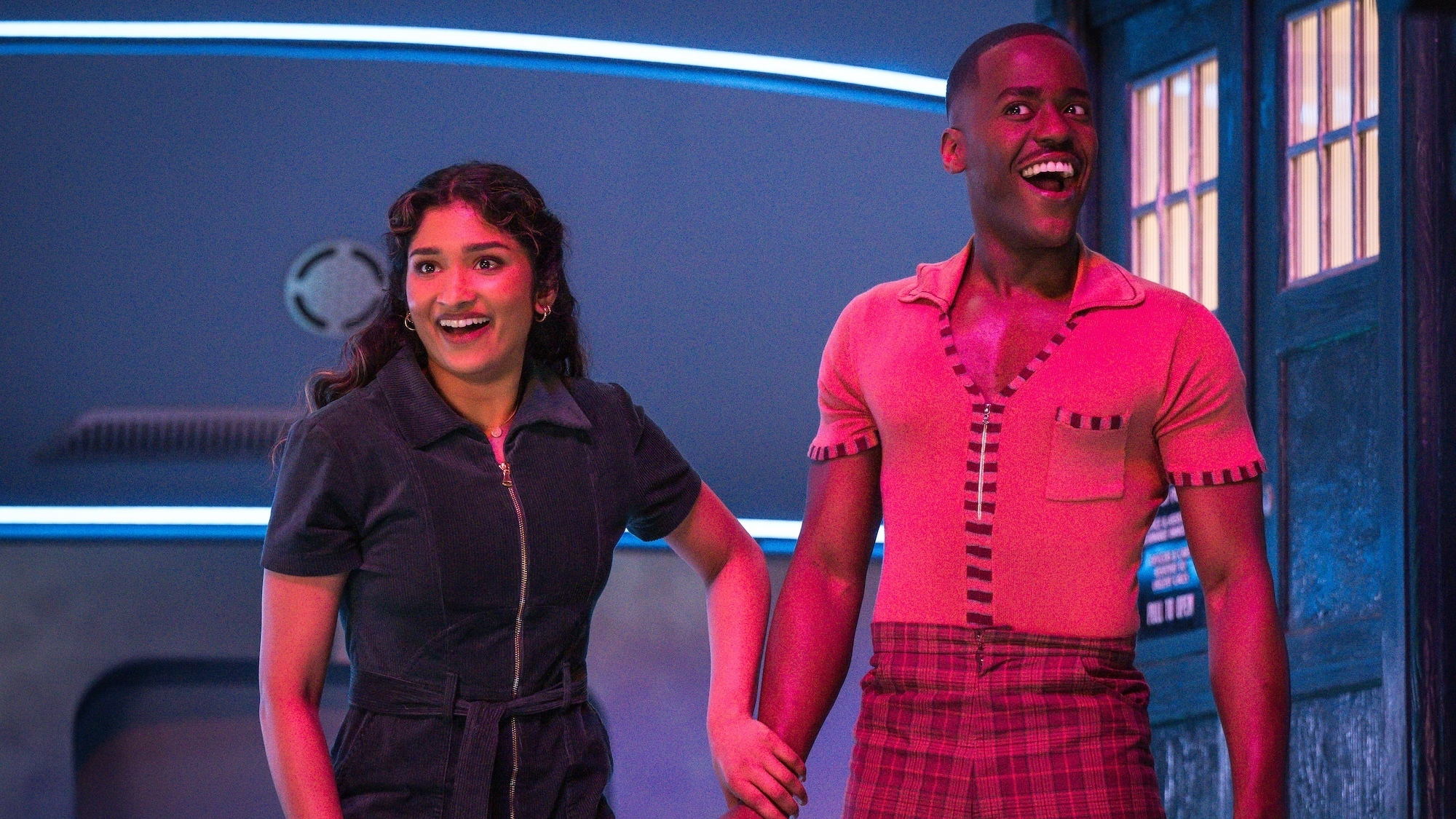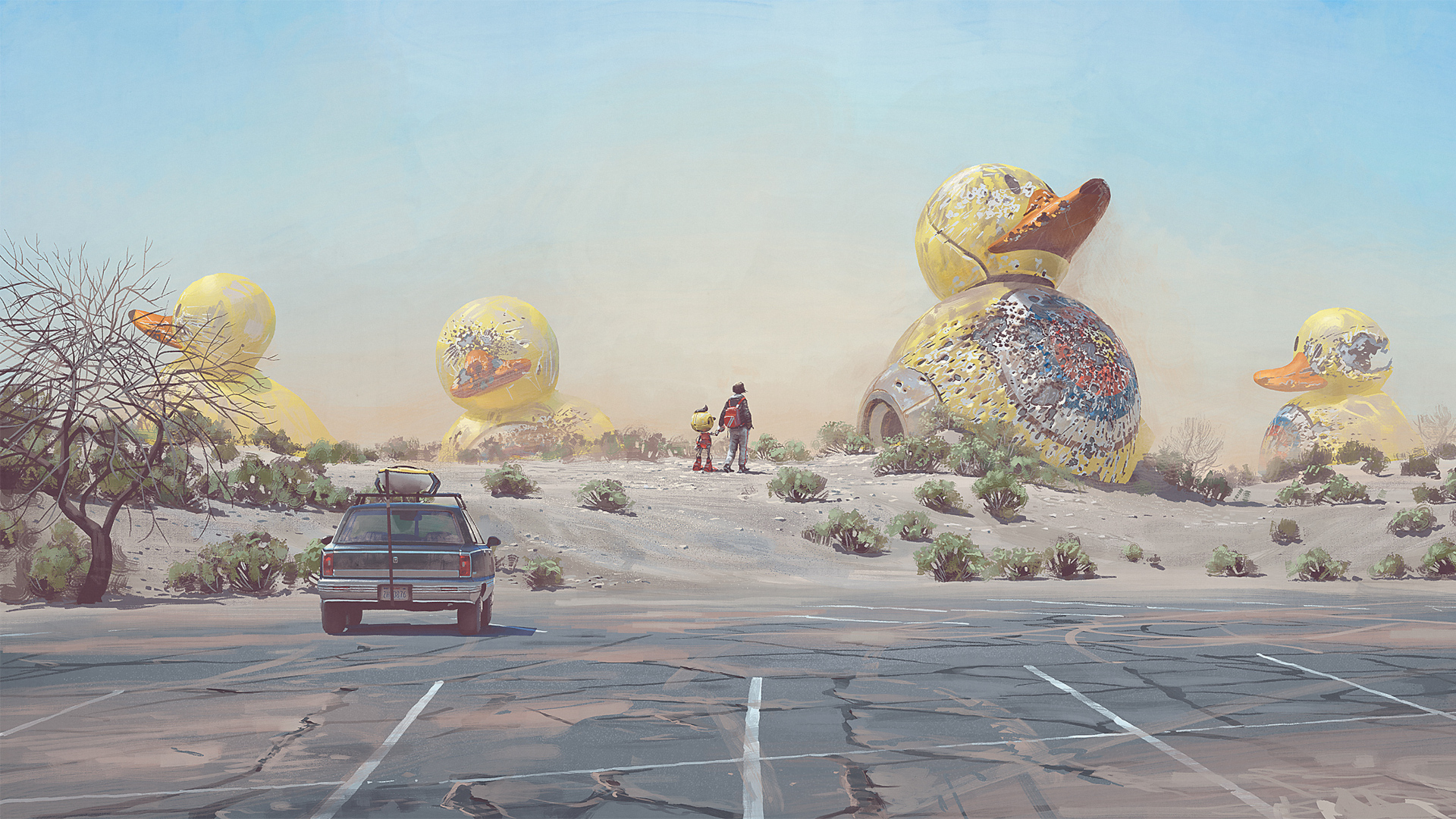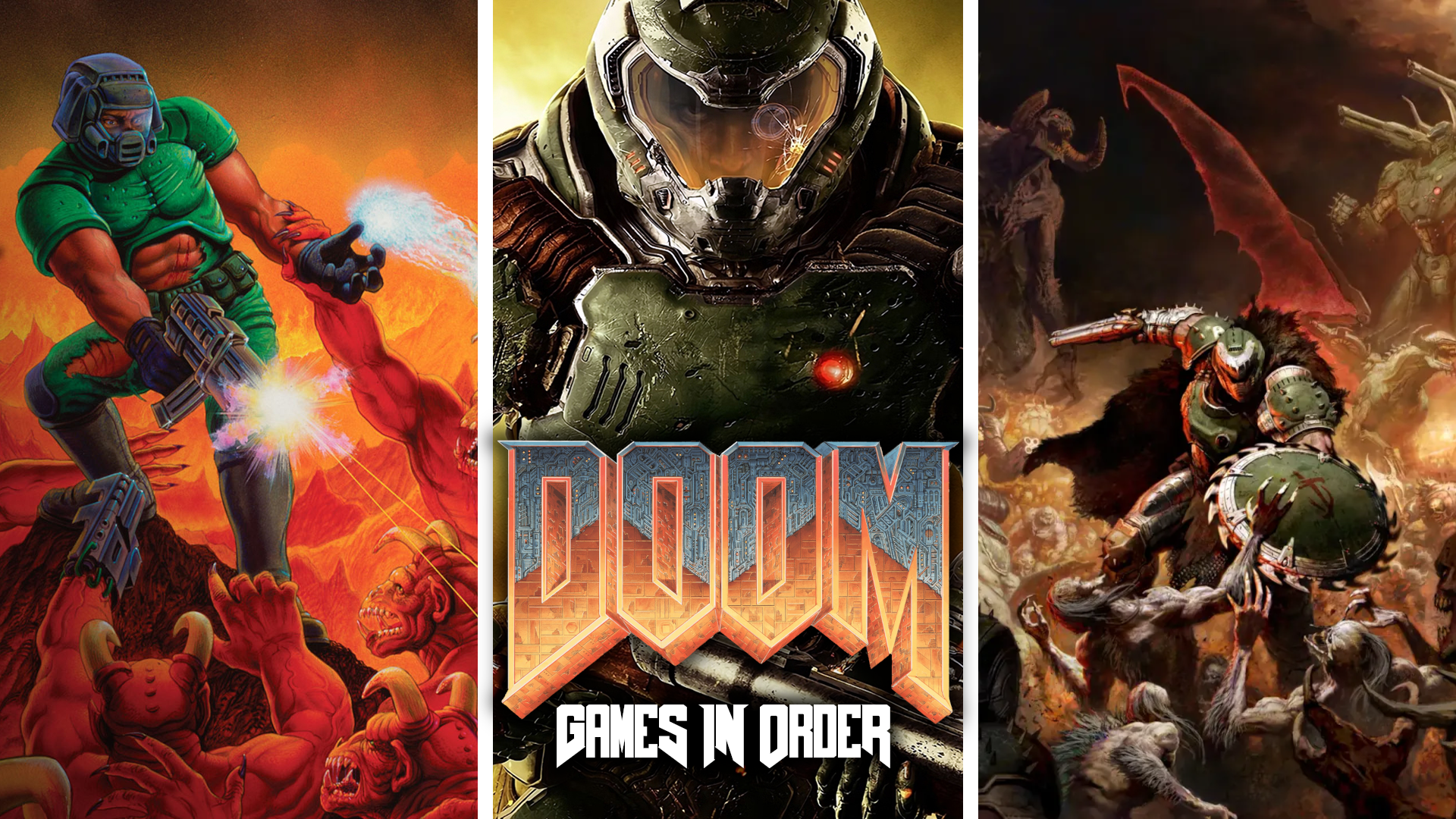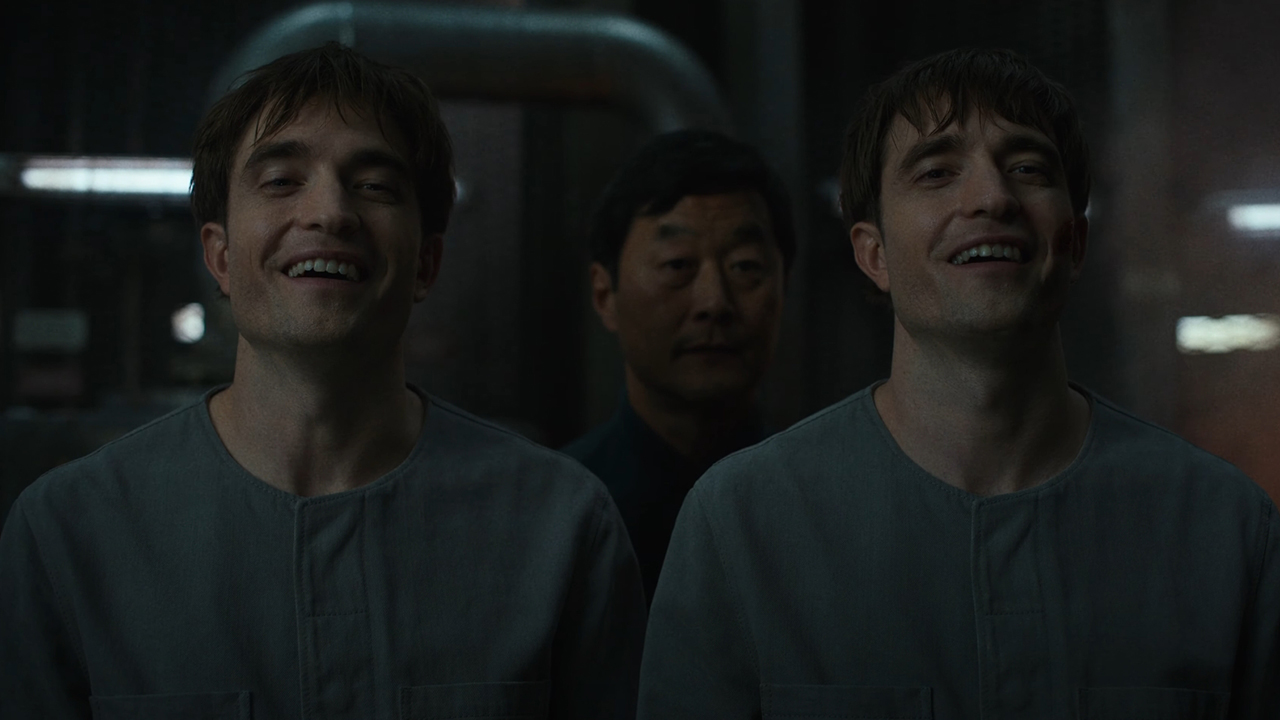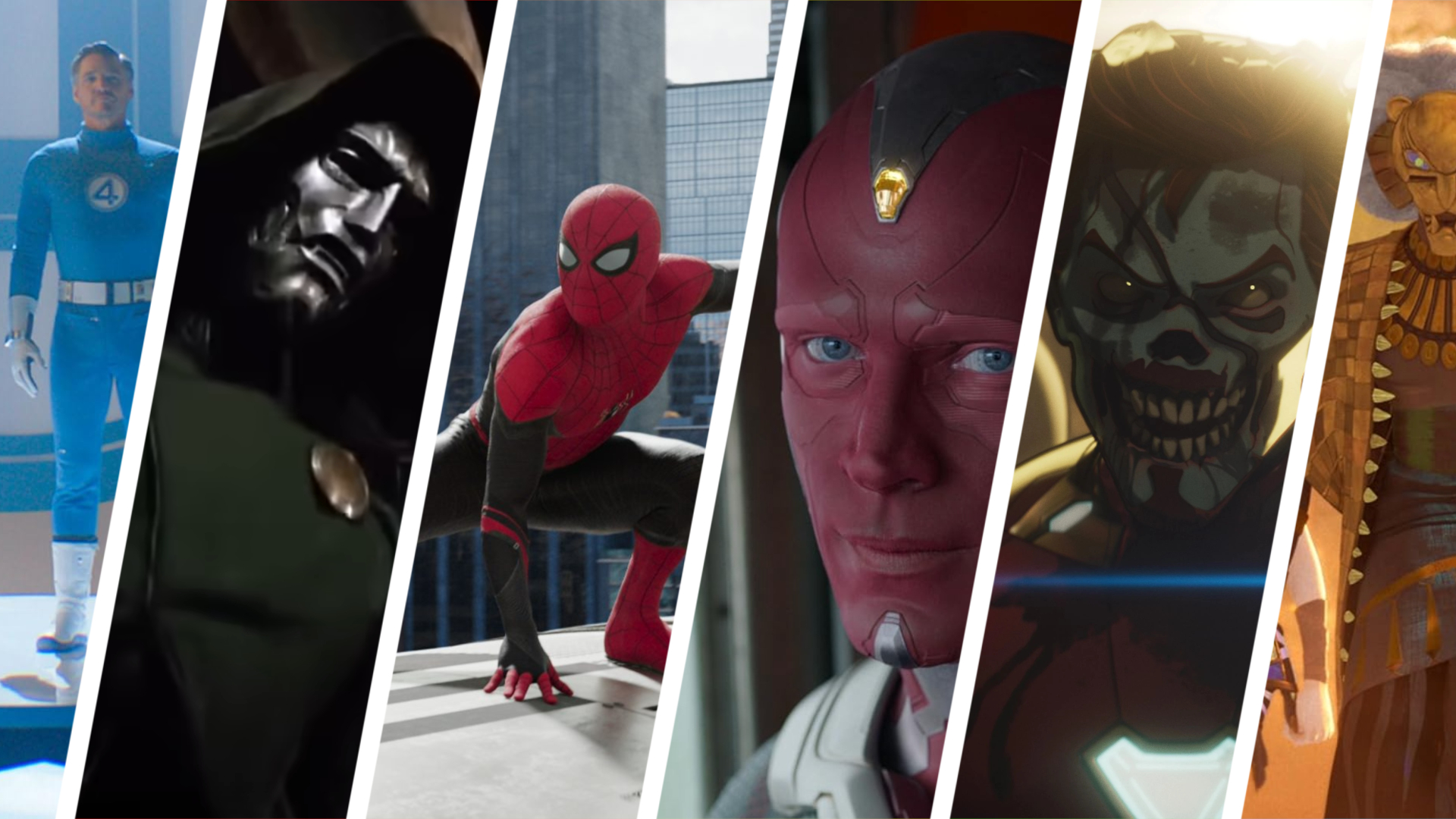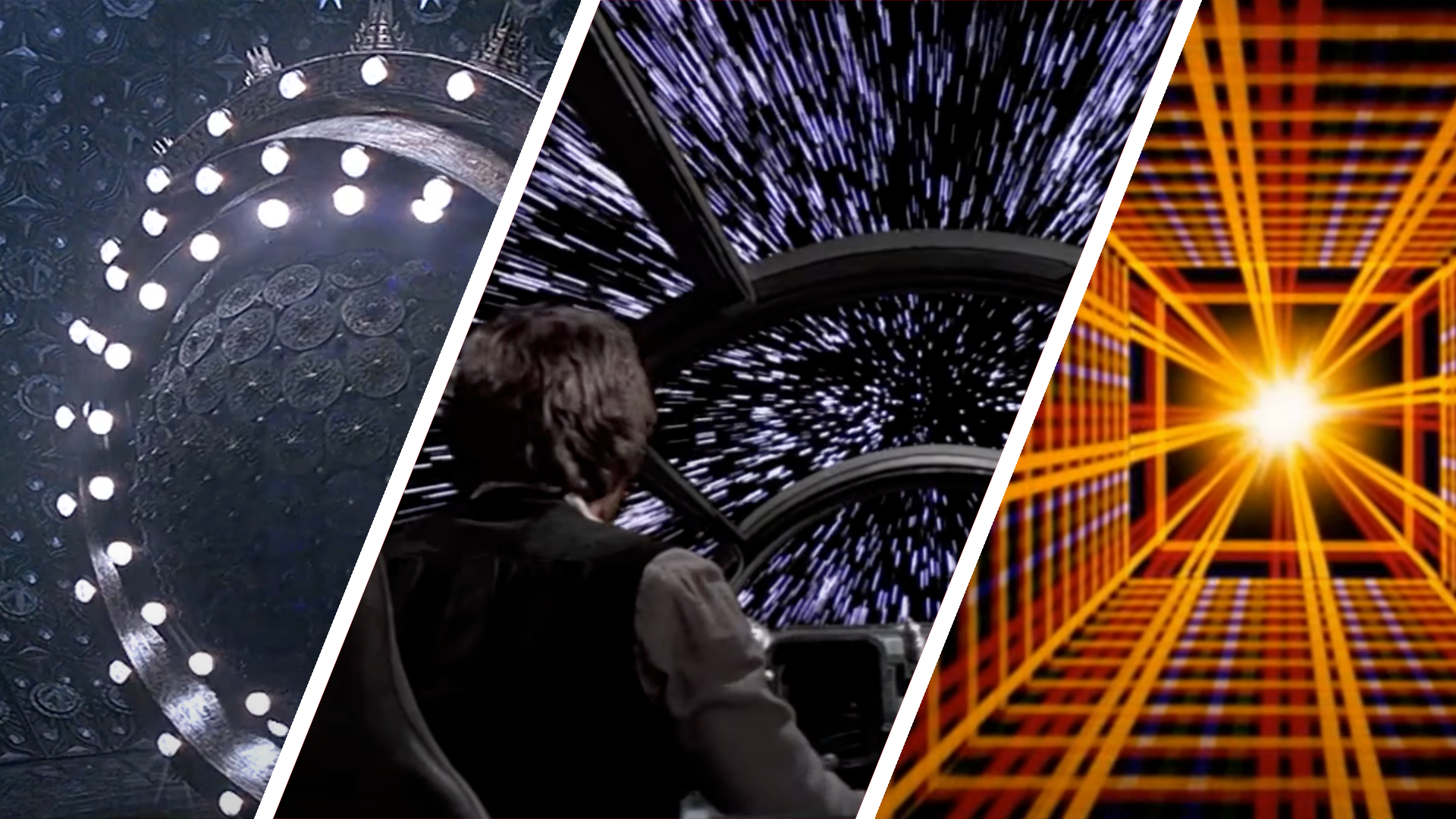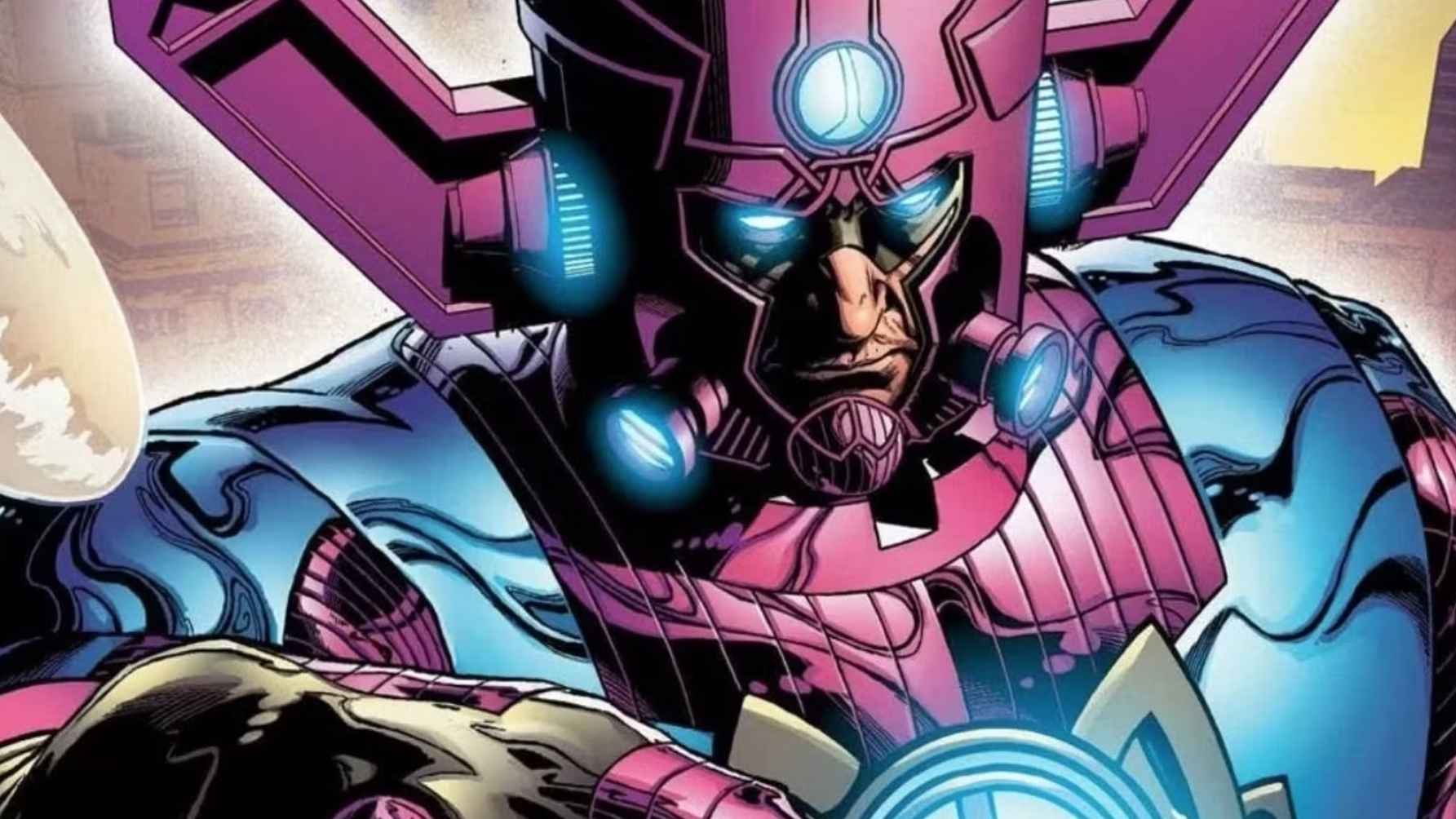The Legacy of Babylon 5: 30 years in the wake of the shadows
As we pass the show's 30th anniversary, we look back at the enduring legacy of Babylon 5, one of sci-fi's most underrated shows.
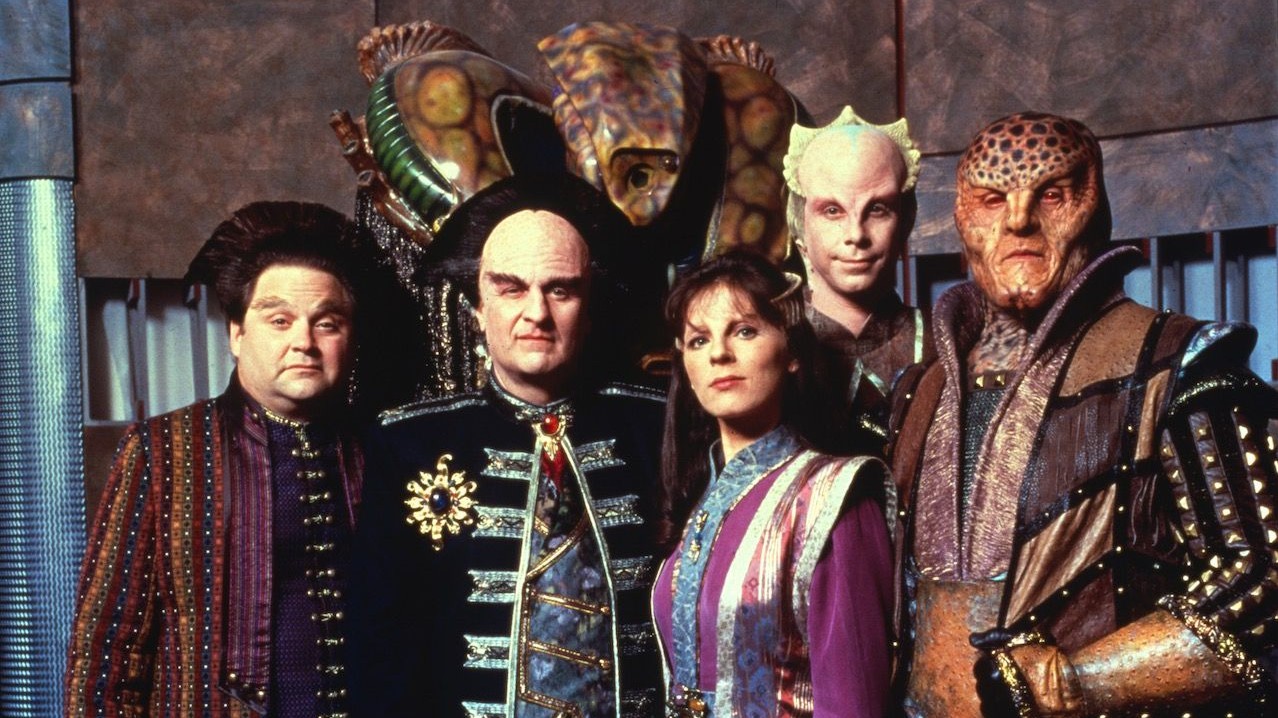
It’s a five-mile-long cylindrical hunk of spinning metal, containing a menagerie of aliens, soldiers, leaders, and secrets, lost together in the night, amidst a futile search for peace. This place is important. Pitched as 'Casablanca in space,' Babylon 5 was powerful and ambitious and despite its myriad of flaws and tribulations, it's an icon of sci-fi TV. But thirty years on from the show’s debut, there are many who haven’t experienced this particular corner of exceptional sci-fi history, and we think that’s a damn shame.
In broad terms, Babylon 5 is a time-honored fantasy story about good and evil. It has alien races like the Centauri, Minbari, Narn, Drazi, and Vorlon instead of elves and dwarves, with the expanse of space as the battlefield. Part of why it works so well is because this is a classic story people have heard their entire lives, with relatable conflicts, but told from a different approach.
There are the huge universe-altering wars, smaller battles, personal rivalries, and internal conflicts, all expertly told. Viewers get to watch the characters grow and change, they are urged to laugh, love, and cry with the residents of the station. The heroes are always fighting back against the darkness, but they sometimes have to make tough choices, while some don’t realize they are being used or are becoming the villains they seek to destroy in the process. Can they all put aside their differences and get on the same page to save the galaxy?
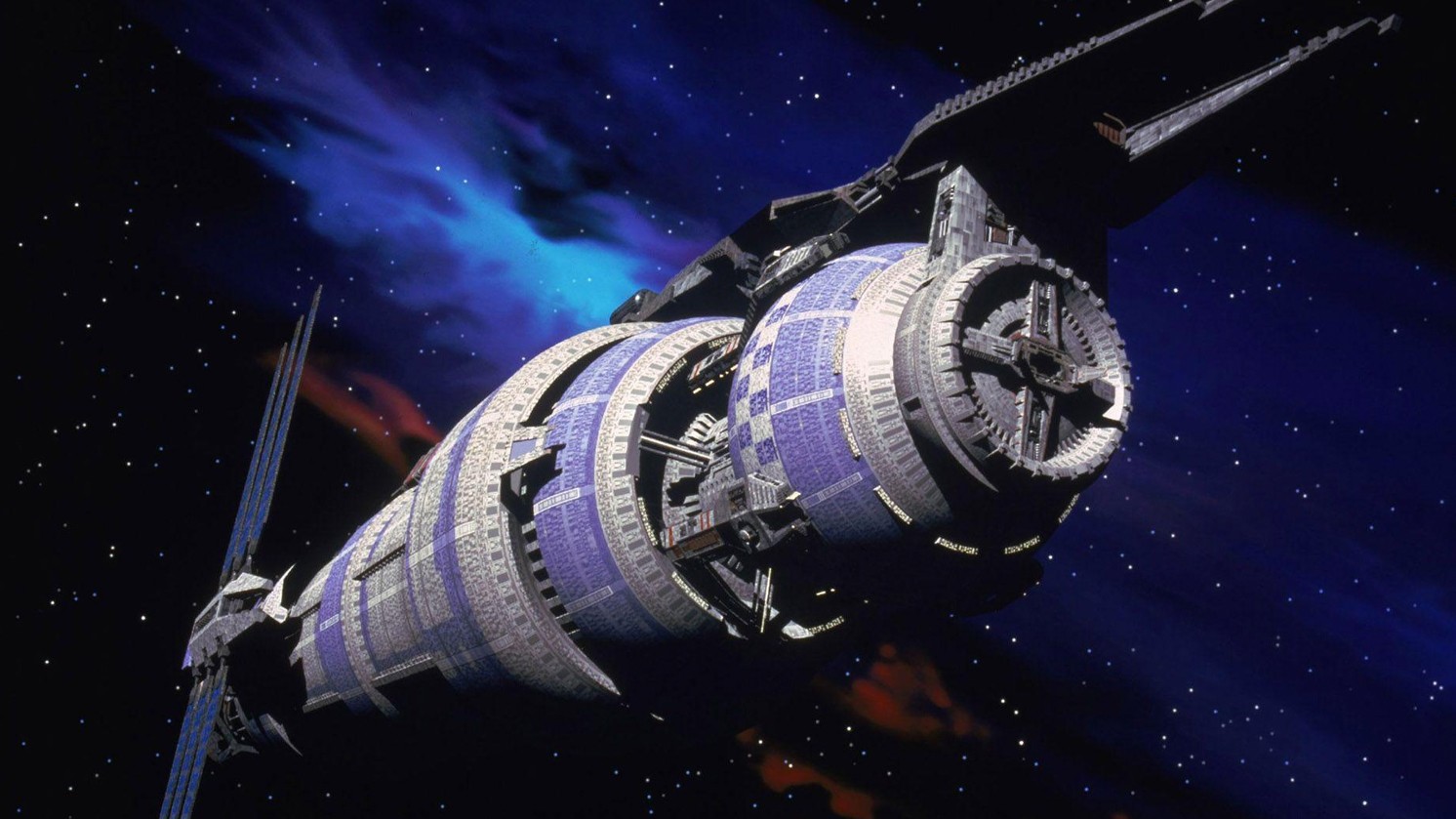
What made Babylon 5 different was how it wanted to tell this epic tale. It was planned out from the very beginning with ‘trap doors’ and backup plans to move characters around and change things as needed. This meant that the show wasn’t reliant on any single character, letting the whole cast breathe and grow.
Up until this point, there were only a few shows that attempted to do similar long-term narratives, but it was rare to see and not truly at this level, especially in the genre. Potentially, it’s the beginning of modern serialized storytelling in television, something we praise now. You can see the influence in Star Trek: Deep Space Nine, and we know it directly affected shows like Battlestar: Galactica and Lost.
Much of the story itself still holds up, with several of the in-depth plotlines feeling incredibly relevant today. Babylon 5 was a show that embraced its genre unabashedly, bringing in techno-babble with its basis in real science, along with psychics, soul hunters, prophecies, and time travel. We got to learn about the universe outside, even if budgetary constraints meant we rarely actually saw anything away from the station.
The writers weren’t afraid to hint at the future, laying seeds that wouldn’t become important until seasons later, and let the fans try to predict what was going to happen in a place that was constantly in motion. Some fans say that Babylon 5 is a slow burn, but it is deceptively fast-paced, especially in later seasons.
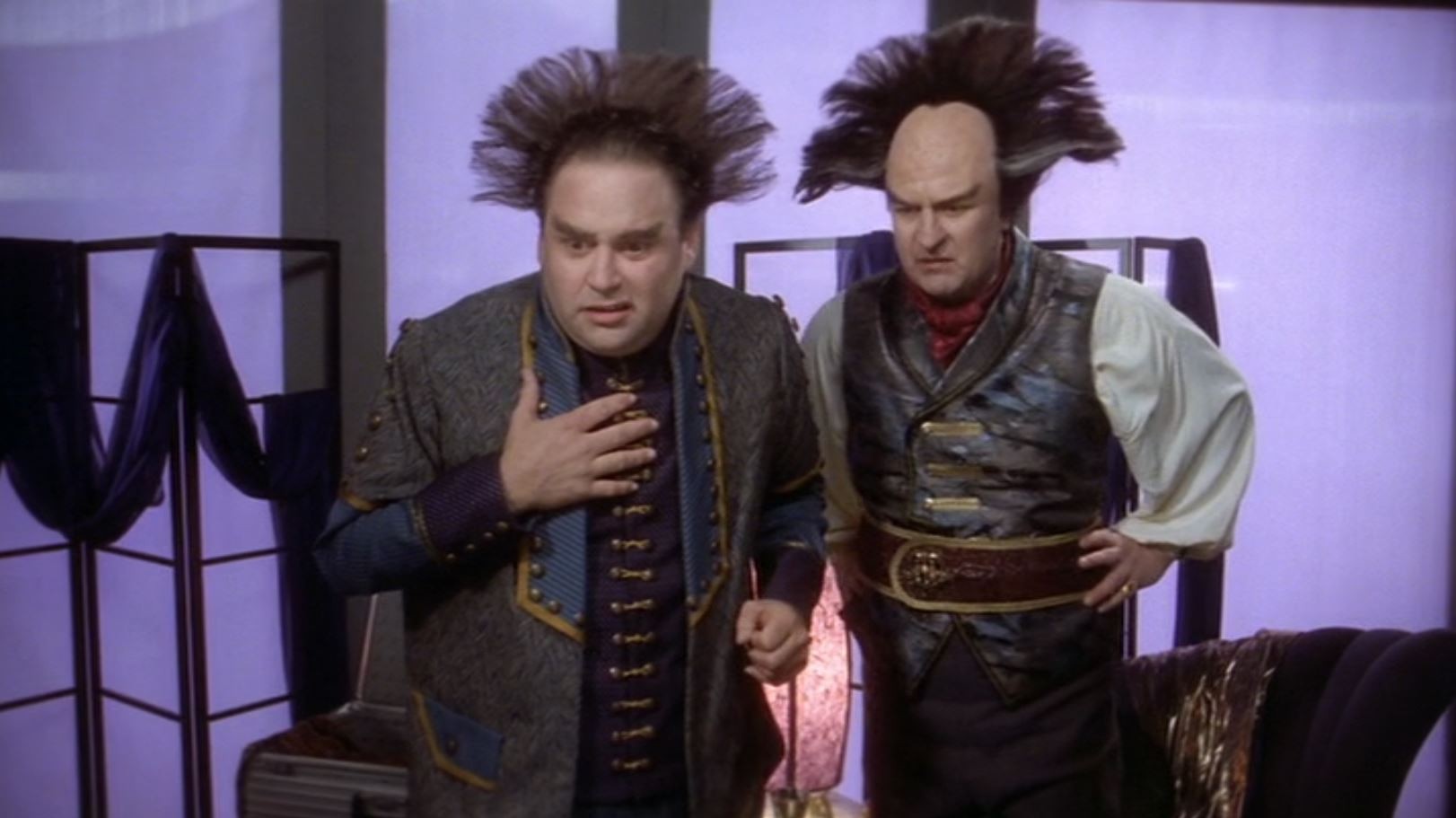
The characters drive the plots as much as they are affected by them. The main cast are all exemplary and we get to see them evolve and change over time (literally in the case of one character who enters a chrysalis). We watch as Sheridan and Ivanova try to hold the station together, while Mr. Garibaldi deals with alcoholism and Dr. Franklin with stims.
Meanwhile, Delenn and Kosh try to parse out information that could save them all. With all these major stakes, it’s impressive that the show still takes the time to focus on characters like Vir and his progress, as Londo proudly watches him attack a merchant’s stand with a sword, or Lennier realizes that he was never going to win that not-so-secret love triangle.
We want to see them all succeed and by the end fans know these characters like their closest friends. On the other side, the enemies aren’t necessarily traditionally evil, but they’re all enthralling. Psi Corp is a great example, especially the diabolical Alfred Bester and the devious devil himself, Mr. Morden. Not all of the acting is top-notch, but the screen presence of so many of these powerful personalities is simply alluring.
In a show where mythological and historical figures show up alongside scenes that discuss Centauri reproductive organs being used to cheat at cards, everything somehow works. After a while, the episodes start running together so fluidly that the story blends into a beautiful river instead of multiple stops or resetting to a rocky status quo.
The innovation of Babylon 5 was that the entire series had been plotted out and was attempted without changing anything that didn’t need to be altered or wouldn’t help improve the show. This was all done by one screenwriter, something that had never been done before.
J. Michael Straczynski was behind the creation of Babylon 5 and he wrote 92 of the 110 episodes as well as many other projects for the franchise. Even outside of this show, Straczynski is known for his writing in other television, cartoon, and comic series.
Straczynski was attempting to make a new paradigm for the small screen and when he did need to have other writers involved, they were notable. Legendary names like Neil Gaiman, Peter David, and D.C. Fontana (of Star Trek fame) all contributed episodes, while Harlan Ellison acted as a Creative Consultant for the series.
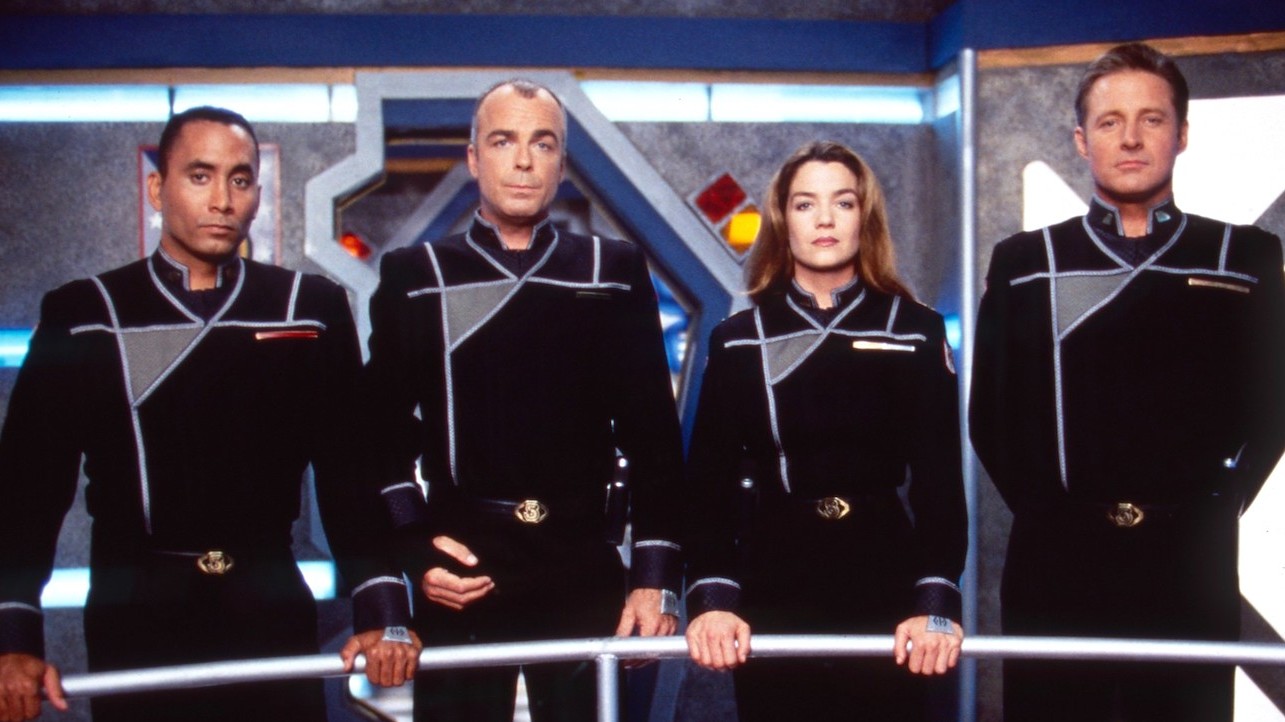
Babylon 5 almost didn’t make it to television at all, and when it did the series faced numerous obstacles. Although Straczynsk built in plans to replace actors if needed, it happened more often than anyone was expecting. The show was unsure of renewals, due to being in the red, and it later faced cancellation. This meant they rushed to produce a somewhat suitable ending, only to then be un-cancelled and deliver a lackluster final season. Babylon 5 killed off its gods and won its big wars, only to stumble over the finish line trying to figure out where to go from there.
The creative minds behind the show made magic happen with their smaller budget, especially compared to what their contemporaries were working with at the time. It was one of the first television shows to use CGI for its space battles instead of miniatures, while also incorporating virtual sets with its traditional ones, something that would help shape the future of how many shows work now. Babylon 5 took a risk with these untested techniques and it paid off. We got some wonderful ship designs and backgrounds that, sure, look a little dated today, but they’re also some of the most unique and alien looking vessels in sci-fi (and should definitely have placed on our coolest spaceships in sci-fi list – we demand a rewrite!).
The music was fantastically out there too with Stuart Copeland of The Police originally starting on the show (only for the original pilot) and Christopher Franke of Tangerine Dream providing the soundtrack for the rest of Babylon 5.
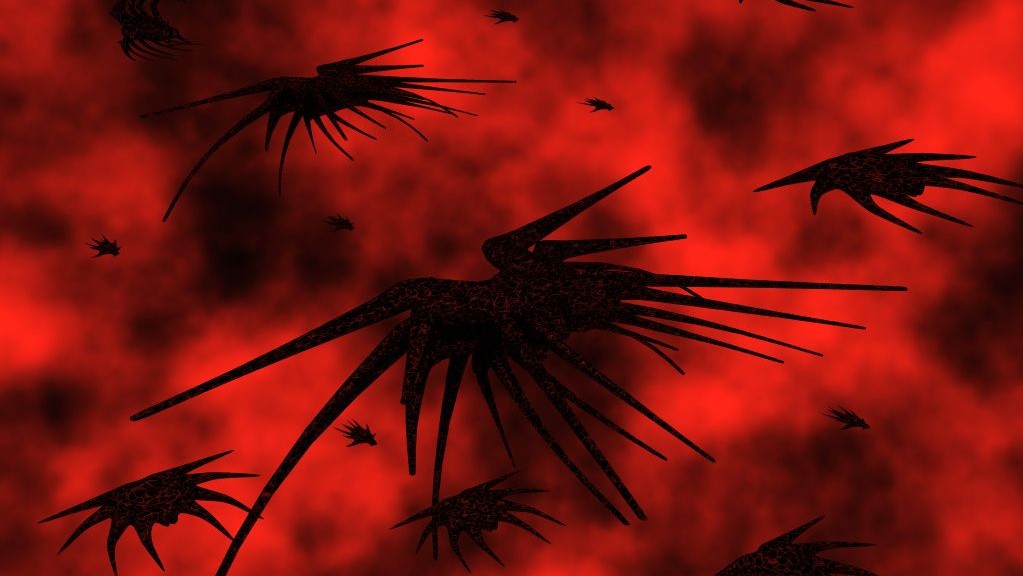
In a time of idealistic sci-fi, Babylon 5 took a grittier, more grounded approach than its contemporaries. Each season the intro of the show changed, updated to reflect the events of what happened as narration told viewers what to expect, further establishing the lack of a status quo and a darker more threatening tone. “The Babylon Project was our last, best hope for peace. It failed,” a famous line uttered by Susan Ivanova from the third season intro showing that things were not working out and characters were becoming desperate. This was war after all, and like any good science fiction it reflects a blend of current concerns, history, and mythical tales in the presentation.
Straczynski says that his show was informed by real-world history, primarily World War I and World War II, as well as various religions, cultures, and the conflicts these aspects of human existence caused. As the name suggests, it took ideas from Babylon, but resembles The Lord of the Rings, Dune, and the legends of King Arthur too, while also paying homage to famous writers like Carl Sagan.
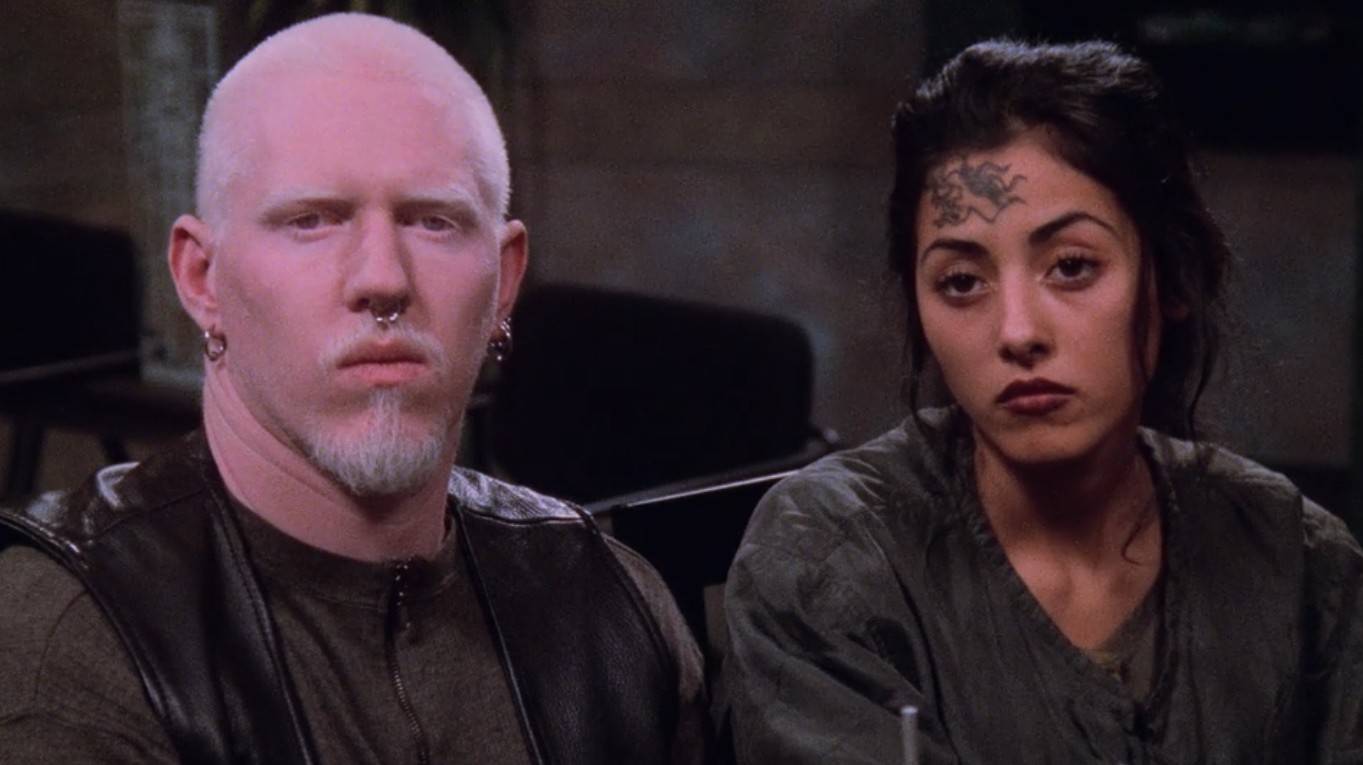
The legacy of Babylon 5 lives on and it’s hard not to think that it has thrived for so long thanks to being based on such grounded, rich influences and possessing nuanced writing and bold planning. There was a follow-up show that was doomed to fail, as well as books, comics, movies, and other television projects. However, fans have been eagerly awaiting a return to the glory days, another dawning for the third age of mankind.
A new project is set to showcase at San Diego Comic Con that will feature the remaining actors from the series, a secretive adventure headed up by Straczynski. There is also a reboot in the works, but news broke recently that shake ups behind the scenes are going to stall this revival, even with CW President Mark Pedowitz saying that the new pilot is a “damn fine script.” Straczynski is still hopeful, but, for now, all fans can do is wait and share their love of what may be one of the best sci-fi TV shows of all time.
Join our Space Forums to keep talking space on the latest missions, night sky and more! And if you have a news tip, correction or comment, let us know at: community@space.com.
Get the Space.com Newsletter
Breaking space news, the latest updates on rocket launches, skywatching events and more!
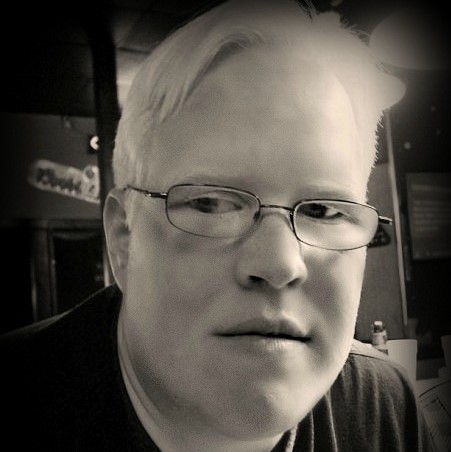
Stephen Wilds is a freelance entertainment writer whose work you'll see pop up in various entities (Looper, Polygon, Coming Soon, Playboy). When he's not writing about sci-fi shows, you can usually find him struggling with commas, broken controllers, and nightmares of Borg invasions. Wilds earned a BA in English Lit, but his real education came from the Sci-Fi channel in the early morning hours when all the really bad shows aired.
-
Bone Agreed. Absolutely outstanding show that still stands up today. I watched it when it first came out and have revisited the entire series and films very recently and I was not disappointed. I also enjoyed the spin off, crusade but sadly that wasn't continued. But for Babylon 5 it was an epic story that spanned decades and really ahead of its timeReply
